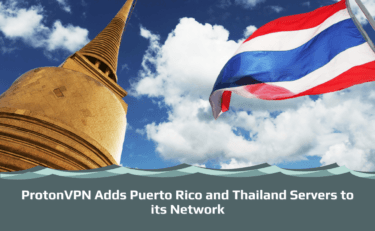Should you use a VPN when streaming? The answer to this question is not as black and white as it may seem. There are many benefits to using a VPN, but there are also some drawbacks that should be considered before deciding whether or not to utilize one.
This blog post will discuss the benefits of using a VPN for streaming purposes, why users may want to avoid them, and what sort of content can be accessed with these services!
Reasons Why You Should Use a VPN when Streaming
- Unblocking foreign content: if you are traveling or living abroad and want to watch your favorite show on Netflix, but find out that it is only available in the US version of the website, they should be able to unblock this using a streaming VPN. If you connect to a server in the United States while watching any streaming services like Hulu or Amazon Prime Video, they will think that you are actually physically located within their borders! This gives users access to all kinds of geographically restricted media content.
- Bypassing bandwidth throttling: Have you ever tried streaming something on YouTube, only for it to play at an unbearably slow speed? That might have been due to your ISP slowing down your internet connection because there was too much traffic coming from your device. A VPN allows you to encrypt all of the data that is being sent and received from your streaming services, therefore making it impossible for your network to slow down your connection or block certain websites! This benefit can be especially useful if there are a lot of people in one household who are attempting to use the internet at once.
- Hiding activity from third parties: while some ISPs might not actually go through the trouble of slowing down their customer’s connections, they still have access to information about what sites were visited by users when browsing online. The privacy policy on most free VPNs states that they do not record any user logs unless required by law, whereas some companies and even websites will keep track of everything their customers do on the internet. A VPN can be used to keep this information private and prevent your ISP from tracking which websites you visit, as well as what apps were opened at a given time! This benefit is especially important for those who wish to remain anonymous when browsing online.
Why Might Users Not Want to Use a VPN for Streaming?
There are some drawbacks that should be considered before deciding whether or not it would be beneficial to install a VPN service onto their device. The first thing that anyone who wishes to utilize one of these services may notice is an increase in latency while watching videos or playing video games online. If someone’s connection gets significantly slower with a VPN installed, there may also need to replace the router itself because it could have been compromised.
Another thing to consider is that some streaming services will not work with a VPN installed, such as Netflix and other similar apps which utilize geoblocking technology in order to restrict access from certain countries outside of their own. These restrictions can definitely be bypassed using a VPN, but it isn’t always guaranteed that they will function properly while one is running on the device.
In addition, some free providers might have data caps or bandwidth throttling policies for users who use large amounts of data per month! While even paid subscriptions may charge extra fees if someone uses too much internet data during any given billing cycle, this won’t happen when utilizing these services so long as you don’t stream anything more than once every few days!

I’m Madeleine, and I'm a writer that specializes in cybersecurity, tech products, and all things related to the internet.
I have a keen interest in VPNs and believe that everyone deserves internet freedom and security. I wr...
Read more about the author

